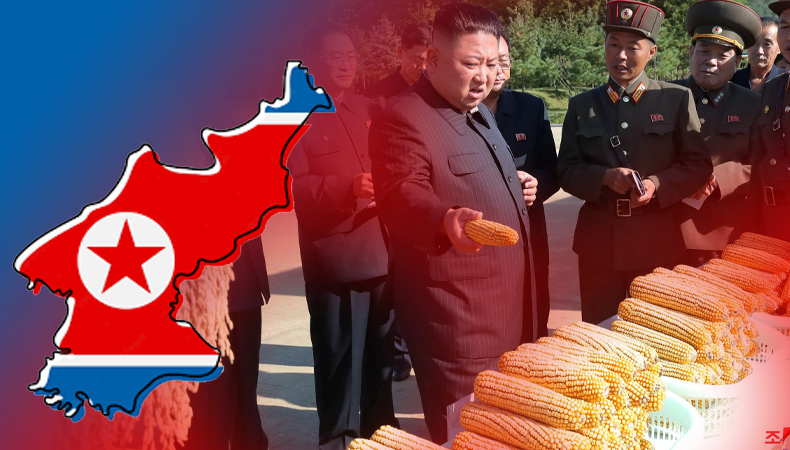Starvation Crisis Grips North Korea as Food Scarcity Intensifies, Exclusive Interviews Reveal

Exclusive insider interviews have revealed the severe food scarcity afflicting North Korea, with stories of famine and a deteriorating scenario not seen since the 1990s. The problem has worsened as a result of the North Korean government’s determination to lock its borders in 2020 and tighter control over its people’s life. Three regular North Koreans were secretly interviewed by the BBC, resulting in rare insights into the tragic tragedy playing out within the impoverished nation.
Also Read – Top 5 Most Powerful Weapons of The North Korean Military
Unprecedented Food Scarcity
The BBC’s interviews confirm reports of widespread malnutrition, fueling fears of an imminent catastrophe akin to the famine that killed millions of people in the late 1990s. Food shortages have gotten so bad that people are afraid they would starve to death or get put to death for breaking the law. The border barrier, which prevented vital imports of grain, fertiliser, and agricultural equipment from China, has made North Korea’s inability to produce adequate food for its 26 million inhabitants worse.
Impact of Border Closure and Increased Control
The closure of the North Korean border and the fortification of fences, along with shoot-to-kill orders for those attempting to cross, have effectively hampered smuggling activities and disrupted the informal markets where most North Koreans rely on for essential supplies. Market traders have reported a sharp decline in available products, leading to a significant loss of income. Ordinary citizens have been left with meager food supplies, with reports of families resorting to suicide or fleeing to remote mountainous regions to face their fate.
Humanitarian Crisis Deepens
According to the BBC’s interviews, a terrible humanitarian situation is developing in North Korea. People who live in Pyongyang and close to the Chinese border have described a grim picture of desperation in which families face extreme hardships and struggle to eat. Kim Jong Un, the leader of North Korea, has acknowledged the severity of the situation by referring to a “food crisis” and making efforts to increase agricultural output. However, questions have been made over the government’s decision to place a higher priority on developing nuclear weapons than resolving the severe food scarcity.
Escalating Control and Surveillance
Through tougher penalties and the adoption of new legislation, the North Korean government has increased its hold on people’s lives over the last three years. Escape attempts are now almost difficult, and those caught face serious consequences. The government has taken tough measures against foreign influence, outlawing the distribution and viewing of foreign films, TV shows, and music. This retaliatory strategy tries to obstruct access to information coming from outside North Korea and quell populist dissent.
Doubt and Discontent Among Citizens
The interviews reveal a decline in people’s loyalty and growing discontent toward the government. Previously, there was a positive view of Kim Jong Un, but the COVID-19 pandemic and its aftermath have eroded public sentiment. The extreme measures taken to curtail foreign influence reflect the government’s fear that awareness of the stark contrast between North Korea and South Korea’s prosperity could fuel dissent and opposition.
Also Read – North Korea Announces Six Deaths From Fever As Covid-19 Hits The Country
The gravity of North Korea’s food problem is brought home by the BBC’s exclusive interviews. A grim picture of the condition faced by common people is painted by reports of malnutrition, a lack of independence, and constrained options for escaping. North Korea is in danger due to its oppressive government and growing level of control over people’s lives. The international community should pay attention to this catastrophe as it develops and consider methods to meet the population of North Korea’s immediate humanitarian needs.




